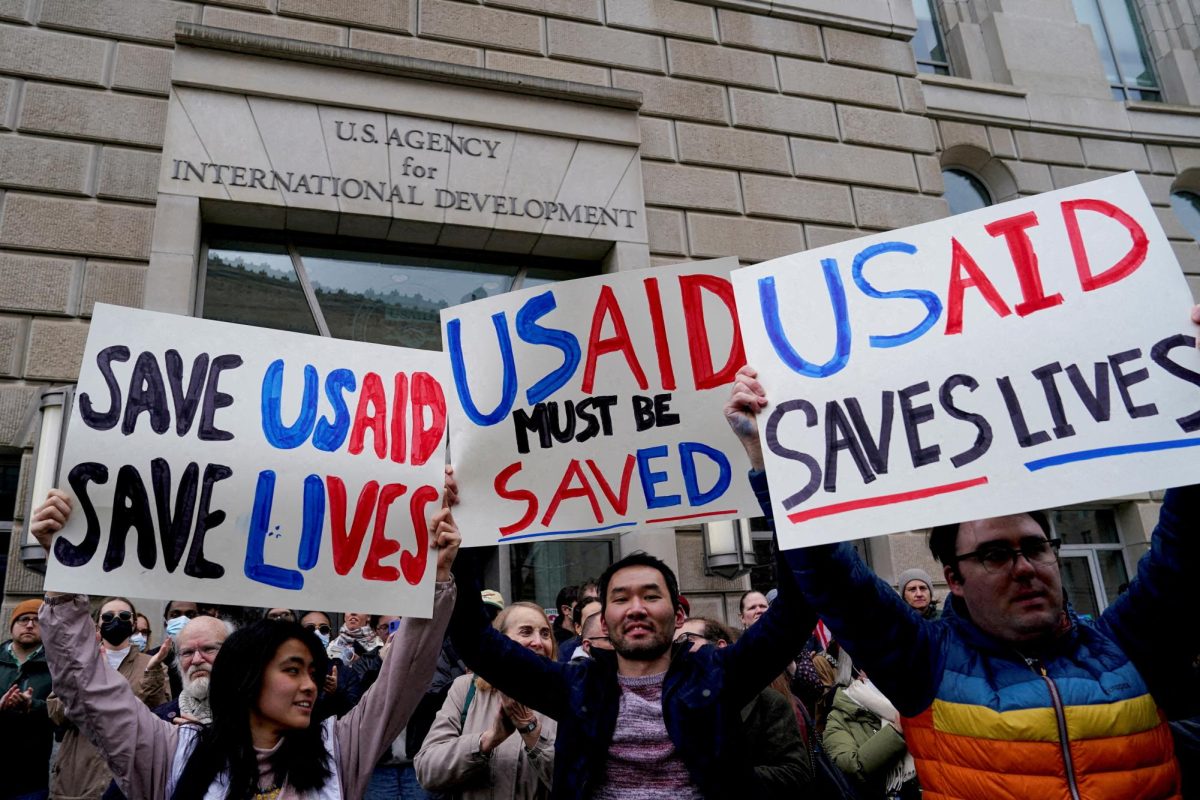President Donald Trump and Elon Musk’s Department of Government Efficiency (DOGE) have been working hard cutting many parts of the federal government including the United States Agency for International Development (USAID). This specific cut, which many are debating the legal authority of, was met with heavy backlash since it upended the global aid system, as hundreds of programs and operations around the globe have already been frozen.
A judge blocked the Trump administration’s order, placing more than 2,000 USAID workers on administrative leave. The act of the Trump Administration violated the vital separation of powers, the Take Care Clause of the Constitution, and the Administrative Procedure Act.
Trump accuses USAID of being a waste of money and not in line with an “America First” agenda. On Truth Social, Trump said on the same day:
“USAID IS DRIVING THE RADICAL LEFT CRAZY, AND THERE IS NOTHING THEY CAN DO ABOUT IT BECAUSE THE WAY IN WHICH THE MONEY HAS BEEN SPENT, SO MUCH OF IT FRAUDULENTLY, IS TOTALLY UNEXPLAINABLE. THE CORRUPTION IS AT LEVELS RARELY SEEN BEFORE. CLOSE IT DOWN!” (Donald Trump Truth Social Post 09:31 AM EST 02/07/25).
USAID employees around the world distribute vaccines and food to people who are hungry and sick. Krista Donaldson, an 11th-grade parent at Convent and Stuart Hall, works at Stanford Biodesign as the Director of Innovation and Impact. She teaches health innovation to address health inequities.
Regarding USAID’s work, Donaldson says, “USAID funds around 60 percent of the HIV medications in Africa. This allows people who would otherwise die to live a normal life. It also prevents women from passing AIDS to their newborns. It also pays for nutrition, vaccines, and making sure women don’t die during childbirth and that children get access to vaccines. Its mission is to better the world but also look out for our nation’s best interests.”
The agency also helps to monitor potential outbreaks such as Ebola and zoonotic diseases (diseases that jump from animals to humans) which are constantly mutating. By limiting the U.S.’s ability to track diseases—not helped by the fact that Trump removed the U.S. from the World Health Organization—the chances of a pandemic happening under a second Trump administration increase substantially.
Full transcript of Secretary of State Marco Rubio’s interview with Rich Edson of Fox News
Furthermore, the agency helps people around the world to think of the U.S. as a positive force for good. “Long-term, the cuts to the agency are going to hurt the U.S. from a security standpoint, both biosecurity—because we won’t be able to send rapid responses to areas with sickness—and with terrorism—because this is not making the U.S. any friends,” says Donaldson.
Helping millions of people in war-torn, poor, and disease-ridden countries, prevents them from turning to terrorism, as many have nothing to lose given the lack of alternatives. It also supports U.S. national security by countering the influence that countries like Russia and China have on third-world countries.
If the U.S. reduces its efforts, other countries will gain greater influence. While influence from different countries can be beneficial, it is not clear why the U.S. would willingly step back from promoting its influence just to cut costs. For years, programs like USAID have helped spread the ideals of democracy and freedom across the world. Scaling back these efforts could diminish that progress and, in the process, weaken the influence of the U.S.
“That [waning US influence] is going to be detrimental for our ability to get people to join the U.S. in foreign policy efforts, and I think the need doesn’t go away, which means people will look for other parties to help them out. That will be China. That will potentially, at some point, be Russia, or India, or South Africa, or any country,” says Covent and Stuart Hall Global Politics teacher Martin Jorgensen.
Whether or not USAID gets fully cut, the Trump administration needs to figure out something that can replace the important work done by the agency in preventing global outbreaks, and it needs to figure out ways to spread influence in different, yet equally beneficial, ways.
It is dangerous to simply cast this off as a cut to unnecessary federal spending. At some level, every federal agency has waste, and getting rid of waste is good. Despite being less than 3/5ths of one percent of the federal budget, there is sure to be budget waste in USAID. But does the benefit of the absence of such an agency outweigh the danger and consequences that come from not having it?
That is the question the Trump Administration is going to have to face, no matter what a federal judge declares.

